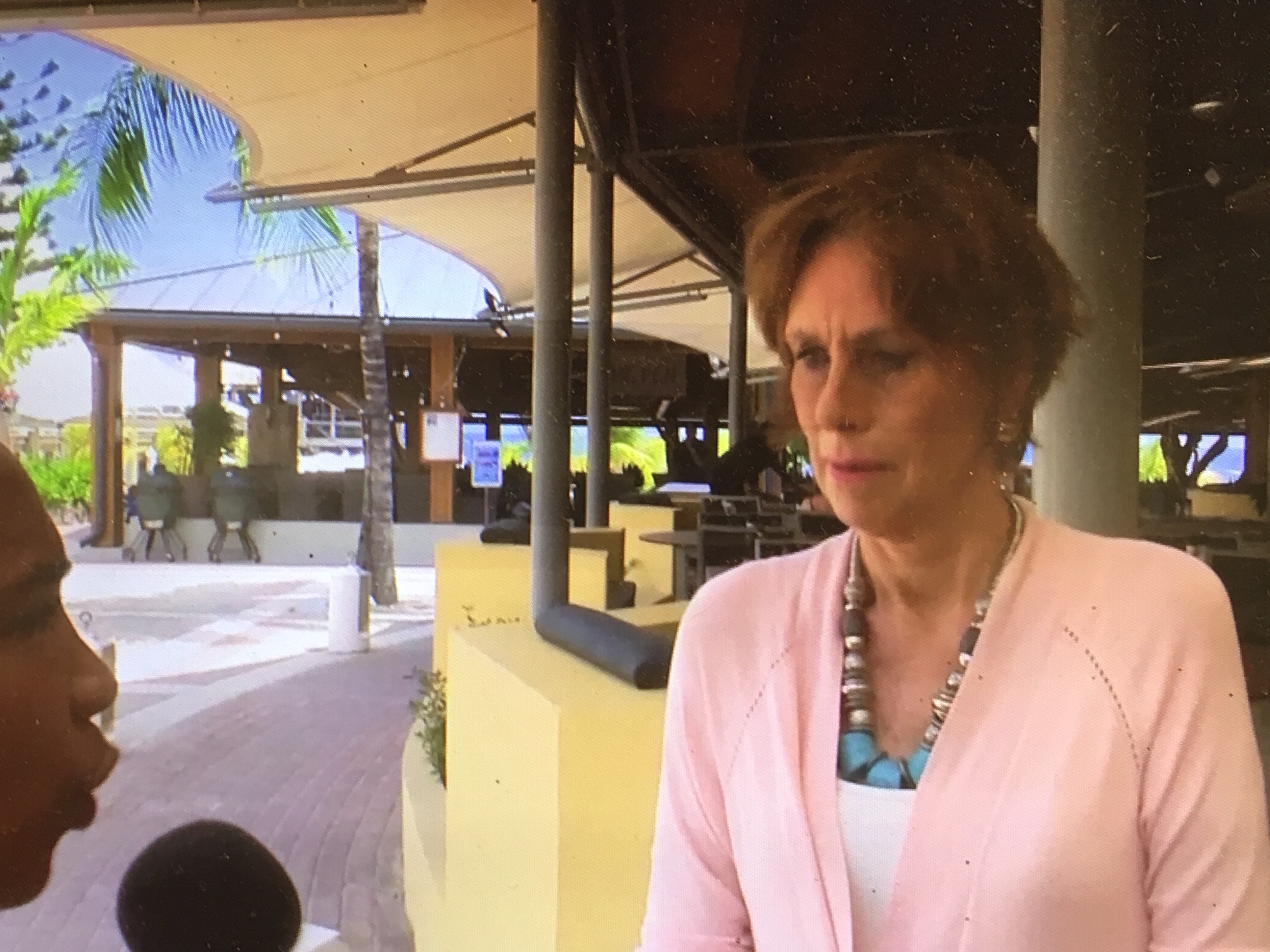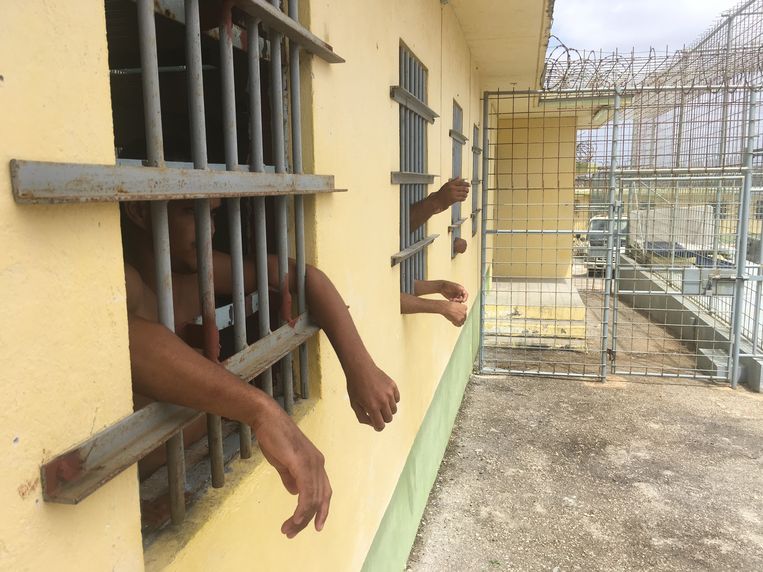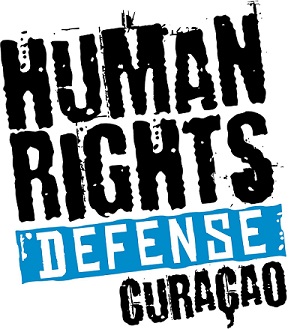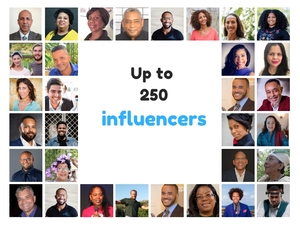Influencer Ieteke Witteveen: independent, committed, inclusive, fearless

Interview May 2021
Could you share something about yourself in general? Where did your independent life started?
My independent life started when I was 22 years old and I bought a one trip ticket to Colombia in 1968. Why did I choose Colombia? I was raised a Roman Catholic and in those years there was a lot of social upheaval and there were a lot of movements that wanted to end the difference between rich and poor and you had some “red” priests that were preaching a new interpretation of the theology of the liberation like Camilo Torres and Don Helder Camera. As young professional that inspired me a lot. Within the context of that time, the sixties with all these movements going on in especially Latin America, I left The Netherlands on my own and went to Colombia. Solidarity, inclusivity and equality had always inspired me. I did go on my own because I have always had and still have this urge to be free and independent. . That is why I never worked for the government, because I feared that if I did that, it might compromise my integrity and ethics. I also didn’t want to work with the Dutch Vrijwilligers Werk that started in the sixties to work in the so called Third World similar the Peace Corps because this could also be compromising. I also didn’t want to be dependent on a man In that time woman rights were ignored and violated and I myself had a hard time accepting that men had more rights than women. I would not live in submission.. You even did loss your own last name if I would marry and also provisions in the law based on the old paradigm that woman had to serve man and ignore themselves, this sticks in your hardware and freeing myself of this conditioning the being a female has been a painful process of self-liberation. Especially in an environment where I was in charge to empower displaced people and victims of violence in Colombia. So 10 years later after arriving in Colombia I ended up in a crises, which I ultimately overcame. So, if you look at the red line in the course of my life I manage to be independent in my thinking and to create my own life, even I did have to pass it in poor conditions. I always stayed in a dialogue with others, but I didn’t and still don’t want to be restricted by the government or any group of people to be able to express my thoughts.
Could you share something of you eductional background and your experiences? How long have you been involved in this work?
I first studied social work at the social academy in Amsterdam with a specialization in probation and community work. In those days I did my internship with Major Bosschardt from the Salvation Army in the Red Light district of Amsterdam. I experienced that the institutional framework for social work did have a too narrow approach. Homo sexuality was a taboo and I was dealing with cases where men were convicted because they were found with other men in urinals. The Netherlands, I found, was too institutionalized. So I left to Colombia and became the head of social work in a newly created and so called invasion “barrio” where there the majority were of afro-Colombians. It is the neighborhoods, Puerto Resistencia, where actually in May 2021, the popular uprisings in Cali are taking place.
After three years I got a scholarship in the USA where I was giving some lectures in Ann Arbor, Michigan and I was invited by a team of scholars from Harvard and MIT to write a PHD thesis with another scholar, especially because of my empirical experiences. This never happened, but I did went on to study anthropology in the Netherlands and after my bachelors in 1972/73 I went to Colombia again and went to Boyacá in the Andes, in the highland where the Chibcha Indigenous people come from and I worked and did some research over there. After graduating in Anthropology and working with different NGO’s and a political party, I came in 1989 to Curaçao with my husband Leon Weeber, back then. I have been in Curaçao before in the 1968/69 and stayed a month with my dear friend Emily Henriquez and I was actively involved in spreading Vito (Stanly Brown was the main editor) on the Gomezplein in those days. So in 1989 I arrived at Curaçao for the second time. I came here as a cultural researcher with IPK. (Initiativa Partikular Kòrsou). We were involved in projects to get a better understanding of the history and culture in Curaçao from below, the barrio, and we aimed to promote empowerment, a greater appreciation of the local culture, history. So we started to organize the first Dia di Bario aimed to create more cohesion and a higher trust levels among people in the “barrios” in Banda Abou, Brievengat, Souax and Otrobanda. From this Plataforma Banda Abou resulted, other neighborhoods organizations and resulted in an Integral Bario Policy.
Could you tell us something about the work you are doing now as a Director of a human right foundation?
After I stopped a director and anthropologist at NAAM, I worked on documentaries on the shared history with the Caribbean Coast of Venezuela and Colombia like about the Jewish diaspora and the movement of emancipation and independence with an important contribution of Curaçao young independstas as Luis Brion, Manuel Piar and others. So I was visiting Venezuela quite often, like Falcon but also elsewhere in Venezuela. Together with some colleagues from Coro, Falcon we started in July 2017 asking attention for the refugees flying from Venezuela. We here in Curaçao and Venezuela have from the early indigenous history have had a shared history of inter personal relations. You will find the same last names here as you would find in Venezuela, mostly of descendants of Sephardic Jews. They have last names like Casseres, Curiel, Penso, Romero.
In the same month, July 2017, the local government did end the relation with UNHCR. In few week later someone from Amnesty International visited me. In January 2018, 11 refugees drowned when they tried to cross the ocean to reach Curaçao from Venezuela. One of them survived and someway somehow found the way to my house. I was surprised, but offered him shelter at that moment. He was dehydrated and just lost some of his family members who were also on that boat, but didn’t make it. With other worried citizens we decided to start a petition asking the government to give attention to the growing crisis in the country of our neighbor’s.

I was interviewed in those days by all kinds of Dutch and international TV and newspapers and I expressed my concern about the lack of a migration policy and a procedure to ask international protection/asylum.
I did have some experience of working with victims of violence working as consultant with the Consulate of Colombia. In that time UNHCR was still present in Curaçao, through the Red Cross. As this refugee was in my house, I couldn’t just walk away and maintain silence. If I had done that, I would have become a complice in something that was not right. . So I decided to use my knowledge to deal with the crises at hand. Given the situation where people lost their lives, I expressed my opinion. Be aware of the fact we have so many family ties with Venezuela that go back for centuries. Names related to the third stream of diaspora. Apart from the Jewish diaspora, we have also known in our history hundreds of Africans diaspora, the maroons from Curaçao, that fled to Venezuela from slavery in Curaçao in the 18th and 19th century and in the Spanish era Indians that fled from Venezuela to Curaçao . So I believe that from a historical perspective the southern part of the Caribbean deserve more attention.
How is it to work and create awareness on human rights for refugees in a time where we are in the middle of a pandemic?
Difficult. Even before the pandemic it was difficult. Curaçao was, of course, not did Aruba or Bonaire, be prepared for such a huge humanitarian crisis. Curaçao, in contrast to Aruba did not validate the International Convention of Refugees yet. In the area of refugee rights there is still a lot of work to be done in Curaçao. Undocumented migrants in Curaçao are still being detained and detained in crowded “alien barracks” behind barbed wire and in prison grounds under degrading conditions.
It is still almost impossible for persons who are victim of extreme poverty and violence in their country to apply for protection and to undergo the careful review to be able to determine whether return is not a danger to the refugee. There are actually still distressing cases of refugees in SDKK in which legal terms of detention are exceeded, with no prospect of release.

Our organization Human Rights Defense Curaçao is aware of the economic crisis and high unemployment that has been going on for years in Curaçao. Against that background, the Venezuelan refugees are seen as jobs and picks up criminals in chats. HRDC aimed at all human rights on the island, will explicitly take into account these environmental factors that make it difficult to integrate refugees on the island. For example, HRDC will explicitly also keep an eye on the unemployment issues and poverty issues in Curaçao and is worried about the growing informal economy.
The government policy has been solely based on persecution, detention and deportation. When you are a person without a “sedula” you have to hide yourself. So thousands of families are living were living in fear and this was during the time the borders were open. Thanks to efforts of concerned persons, and especially a young female Dutch doctor who was doing her medical residency, Curaçao has now a clinic for medical care Curaçao to start with the registration of the crisis migrants and allowed us, together with other NGO’s to guarantee the food security during 2020. In October we did ask the humanitarian organization ADRA to continue with this task together with other NGO’s and the Red Cross. In that way we can deal more with legal issues as preventing deportation and advocacy for children rights and with capacitation of volunteers.
So we can assist with a lawyer in cases of violation of their human rights like being mistreated without juridical assistance.
One of the good things that are happening is that the food aid and vaccination of the refugees in this Covid-19 pandemic includes all persons living in Curaçao. Yes, the inclusion of the people of without a legal status was on the request on the government of Holland.
Imagine the humanitarian disaster that would have taken place if this wasn’t happening.
Because of their legal status and the fact that there is no policy from the government the status of the refugees and crisis migrants are much more vulnerable as the Yu di Kòrsou.
It would be wiser for the government to be inclusive and allow them a temporary stay here, of course after a good registration and screening. Colombia has taking a clear stand in this matter and has decreed that all Venezuelan refugees till 1-1-2021 will receive a temporarily permit to stay in Colombia. It would be wiser to have a closer like to the skill of these refugees who are already in our country, and making a live. They are of no burden for the government. Without a clear policy they are only increase the informal sector of our economy instead of contributing to it in the form of taxes. The word refugees in itself is still a taboo in Fort Amsterdam. Curaçao lacks the “know how” on this subject matter. That in itself is not surprising, because the Venezuelan refugee crisis developed quickly and nobody was prepared for this.
What is your BIG WHY or driving motivation to be whom you are right now?
I live here for 32 years now and hope to stay here till my end. I came here with the intention to contribute to creating more knowledge and conscience about Curaçaos history and culture and to overcome a history of enslavement and pain. My driving motivation and dream is still being part of a beautiful, inclusive society for all its citizens where every person would get a chance to flourish. As a Curaçao as an integral part of the Caribbean. It was sad to see that so many young people were migrating to the Netherlands. It was not foreseen that so many people came here the last five years from the neighboring countries as refugees. They are constantly living in fear of being caught by the police, their children literally poop in their trousers when they see police. They are being marginalized and apparently they are not allowed to integrate in our society looking at the actual Moratorium about Work permissions for not locals.
The European refugee policy is not very helpful to deal with the actual refugee crisis of Venezuelans. Pardon me to tell this, but we have to remember that during the Second World War, the German Jews when they wanted to flee out of Germany to Holland in 1936, they found that the borders of Holland were closed. The same goes for borders for the Kingdom of the Netherlands in the Caribbean Sea at this moment. It is the European policy right here. Person without a legal status are not seen as humans. I know of stories of torture, of shooting, of women that were put standing in the rain at nights, stories of sexual abuse, and they are locked up in cells between women that are sitting out their sentences. They are being treated as if they are delinquents. Tans risk of losing their lives if they are expelled out of the country. We don’t publish all the violation to the press, but what is happening, is really very very serious.
The upside of our work is that in our Human Rights NGO does exist, with great board members and we are fortunate to have recognition internationally.
What are the challenges that you are dealing with? And how are you dealing with these different challenges you confront?
We have made some strides since the first refugee appeared at my house dehydrated and he had just lost family members. Curaçao has a foundation now, a Non-Governmental organization to defend the human rights of all the people in Curaçao. and we have funds and with these funds we can hire lawyers, they help us think on what policies are needed and they help us write letters based on article 3 of the European Treaty on Human Rights. We can then say to the authorities that this and that person was mistreated and cannot possibly be expelled. We now fortunately have sufficient money to handle with these type of challenges.
Do you use your inner voice to evaluate when dilemma’s show up? How does that work for you?
Experience and intuition. After the first refugee arrived at my house without prior notice, there were some more cases and after consultation with my significant other, we would give shelter for a few days. There is still no shelter not even at the Red Cross. And what do you do at night time if a pastor approaches you that a refugee woman contacted him and he could not offer shelter himself…Our my work is not completely free from danger btw. But I can sense the difference between someone that is vulnerable and needy and someone that triggers my internal alarm bells. That’s how it works for me. We have to deal with those dilemma’s.
How are you trying also to keep up with your personal knowledge and skills levels?
With the help of UNHR and the Dutch Refugee Council we organize courses. I read a lot, And I listen to experts and critical persons around me. I cannot stay disconnected whilst I know of so many people in our society are not treated right. I am not that kind of person.
What are your strengths?
Persistence.
Do you have hobbies or interests that you are also passionate about?
I love writing and I am still hoping to contribute to a more Caribbean, intercultural approach to deal our development as I did when we started in 1995 with the Foundation Kultura I Desaroyo.
If you as Ieteke would meet a stranger in the bus (let say in Colombia) and they would ask you to introduce yourself what would you answer?
I would tell them that I am Ieteke or with one of my other nick names like Irene or Inchi and that I am from Curaçao and that I lived in Colombia before with lots of affinity to the Caribbean region.
How would you describe Ieteke in one word or one sentence?
Very committed, I can’t stand injustice and I am not afraid.
Whom are the persons that have inspired you the most in your actual career?
Lucita Moenir-Alam. She inspired me to institutionalize my human rights efforts in Curaçao and create a foundation. She is very clear in her thinking, has a lot of international diplomatic experience, she has studied International law. She inspires me and keeps a critical eye on my actions as director of the Human Rights Defense Curaçao.
What is a trait that is still work in progress?
I like to take more care of my personal life self, instead of only taking care of others. Maybe that is a trait of more a woman of my time.
What was a defining moment in your life?
Leaving the Netherlands with a one way flight when I was 22 years old. I did have and still have the impression that this European country is too institutionalized, too fragmented and too much individualized in my way of seeing humanity and being myself.
Where do you want to be 10 years from now with your career?
I would still be involved in mentoring and coaching our next generations.
Like when I arrived here on the island we started a movement of “kunukero’s” cultivating their own food and it inspires me and it gives me a lot of joy to see that more and more people are doing this nowadays.
What would you want your Loved Ones, family, friends and others to say about you let’s say 20 years from now?
That they love me with all my whims. During my studies at the Social Academy, I became inspired by a Jewish philosopher, Martin Buber, he taught me about inclusiveness. I learnt more of this inclusiveness from the descendants of African cultures in Colombia. It is based on mutual respect, muntu, where the human relations are not only based on values like production or progress, but based on humanity. My years with my Cuban husband learned me that this is the philosophy Òrúnmilà. (see also: Socrates and Orunmila, 2017 Sophie Bosede Oluwole) Furthermore that I have come to live to see another dream come through. I live at a house with a view on the sea and my dream would be, that we be again a seafaring nation.
What makes you stay optimistic about the future of Curaçao as we are in the middle of a worldwide pandemic, recession and in the middle of growing environmental challenges because of the global warming consequences?
Because Curaçao has a lot of potential. We have the people, the geographical position, the languages and the cultures. If only we could live without frustration about the past trauma’s and celebrate life, if we would dare to celebrate what we have. But is seems to be difficult because of old colonial laws are still suppressing more joy in our life.
More info:
Website: humanrightsdefense.org
Connect: linkedin.com/in/ieteke-inchi-witteveen-
One of the 250 Influencers of Curaçao
Ieteke Witteveen is independent, committed, inclusive, fearless fighter for justice, equality and humanity for all. Of late she has become better known for her work as the director of a foundation dealing with refugee matters. As an anthropologist and independent researcher, she has gained lots of experiences and knowledge of the Curaçao society but also of societies in the Caribbean region which includes Colombia, Venezuela and Cuba. Her drive to stay an independent thinker and in-acceptance of injustice has meant not choosing for the easy way out but for the road less travelled. This has been the red line during her life, which made her choose not to work for the government, but at the same time becoming an advocate of inclusiveness and equality throughout her career. What typifies Ieteke is when she was challenged by a refugee in January 2018 that someway somehow came to her at her house and asked for help. She after ample consideration, didn’t hesitate to give a helping hand, as she is unable to walk away from injustice. She became a fearless advocate of refugee’s rights and all human rights in Curaçao. And although the situation of the refugees and crisis migrants on the island is still in dire state and because government lacks a clear policy other than a repressive approach, her work with the help of others has resulted in some small improvements in the situation of refugees on the island over the last couple of years. Refugees are eligible to get food aid during the Covid pandemic, vaccination and legal assistance when needed in cases of misuse of refugees or the danger to be expelled. The actual focus is seeking for a balance between the Yu di Korsòu in need and these newly arrived crisis migrants.
The foundation also has a good supporting board and it is recognized internationally. Because of this, we dearly love and deeply respect Ieteke Witteveen and consider her part of the 250 Influencers of the island representing the Human Rights sector.



